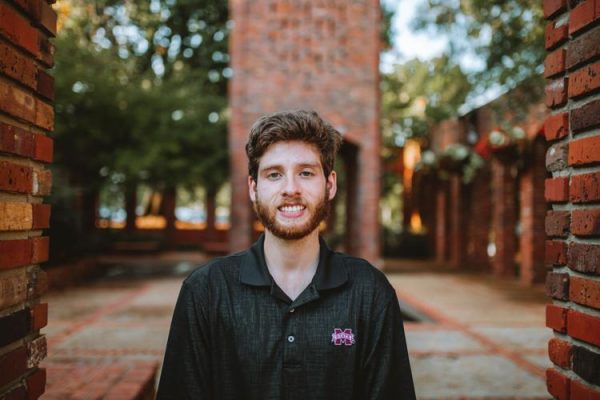Just last week, I scolded people for being so apocalyptic about the novel COVID-19 virus. Now, I am locking myself in my house. What I would have considered a comical overreaction only five days ago, the thought of life being brought to a standstill to stop coronavirus from advancing is now being recommended by President Donald Trump to all Americans, healthy and sick alike, as reported March 16 by NBC News.
Mississippi State University’s courses have been moved online until further notice. Sporting events and concerts have been canceled. People are being asked to work from home or, even worse, choose between going to work sick or staying home without pay. Every shopping center I have been to has been emptied of essentials and common food groups. Derek Hawkins et al. with The Washington Post report, “Officials warned that the outbreak could go on for months. Trump said it’s possible the economy will go into recession.”
If the reader allows me to be candid, it feels like the world is turning upside-down, and we have no control over it. A lack of control is a scary feeling and one we will all have to wrestle with; however, let me begin with a good conscience and give the World Health Organization’s advice to take control over the situation: wash your hands frequently, cough into your elbow, practice social distancing of three feet or more and stay home if you feel unwell. Additionally, call ahead to your doctor if you have a fever, continual coughing or have trouble breathing.
Many people have likely heard many of those things many times before, and that is for good reason. We all have a part to play in combating this illness. What can we gain from this disease which has already taken our lives, figuratively for us all and unfortunately in a literal way for others?
Sir Isaac Newton, after being sent home from Cambridge University during a bout of bubonic plague, would use the time away from school to continue his work on calculus, expound his theory of optics and begin his study of gravity. Now, I cannot do any of those fancy STEM things, my mind being as math-focused as a language arts textbook, but I can read and write, thanks to those very same language arts textbooks. I, for one, am trying to catch up on my reading goal for the year, and maybe, I can get ahead on some of that book I am always meaning to write.
Students, just like Sir Isaac Newton, could learn origami, practice cooking, start learning code, finish that young adult fiction series or gorge on educational podcasts and they would have used this virus more than it has or could have used them. In these dark times, we can shine a light of productivity. Rather than let this virus control us, we can control it.
In a time where we are tempted to separate, let us take solace in the solidarity of seclusion, which this disease has thrust upon us, and recognize the humanity in those also huddled in their homes. Viruses do not target by party affiliation, religious leaning or sexual orientation. They target us because of our humanity, and that, as an equalizer, is important to recognize. Regardless of creed, company or color, we are all still vulnerable. It is vulnerable times as these which give us the greatest opportunities of human connection, even if quarantined.
To use a personal analogy, I have obsessive-compulsive disorder, and I have known about it since third grade. For those counting, I have lived with this disorder for 11 years. For those with good memories, 11 years ago we faced another outbreak of a panic-inducing disease called swine flu or H1N1. If my memory serves, coronavirus has most certainly caused the greater panic, but I can, however, vaguely remember the uneasiness and precautions of 2009.
My self-psychoanalysis has, I believe with good reason, linked these two occurrences together. My brain already tended obsession and compulsion, and the swine flu was the catalyst which molded my OCD into one focused on pestilence and prevention. I was scared of everything, and I despised leaving my house for fear of contracting the dreaded something or other. To make a long story short, such a life is no life to live, and I wish I could regain those lost years of seeing shadows in everyday life.
We are now in a crisis moment, dear readers. We, as Americans, are in danger of the same catalyst my young self latched onto and refused to let go. Society, as a whole, has a tendency towards panic in these certainly uncertain times. However, times of crisis always present choices, and we must make those choices. I want to assume the readers’ intelligence and assert we can know they will properly adhere to the WHO guidelines, so irresponsibility is not a choice but an irrationality. We do have a choice in if we see this as an opportunity or not and how we use the time it gives us to reflect.
It is time we read The Silver Lining’s Plaguebook
About the Contributor

Dylan Bufkin, Former Editor-in-Chief
Dylan Bufkin served as the Editor-in-Chief of The Reflector from 2020 to 2021.
He also served as the Opinion Editor from 2019 to 2020.

























































































